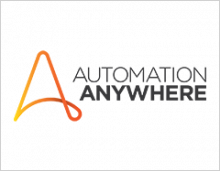Robotic Process Automation (RPA) Services
Automate Routine Tasks, Increase Speed, and Achieve Greater Efficiency with RPA
Drive Operational Excellence and Innovation with Strategic Robotic Process Automation (RPA)
Robotic Process Automation (RPA) is a crucial technology for modern organizations looking to boost operational efficiency and reduce costs. Unlike traditional automation, RPA offers a faster, more cost-effective approach to automating repetitive and complex tasks. By leveraging advanced software tools, intelligent bots, and innovative automation strategies, RPA streamlines end-to-end business processes, reduces human error, and lowers operational costs. This technology not only speeds up task execution but also builds a foundation for scalable, intelligent automation that drives overall productivity.
Our RPA implementation services offer tailored automation solutions to fit your specific business needs. From initial planning and analysis to bot deployment and ongoing maintenance, we ensure a smooth rollout that maximizes performance. Additionally, our RPA integration services seamlessly connect automation with your existing systems, enabling efficient data flow and automation across platforms such as ERP, CRM, and databases.
We guide you through every phase of the RPA journey, addressing challenges and delivering customized solutions that seamlessly integrate with your business processes, driving both efficiency and productivity. Learn More about Robotic Process Automation (RPA)
RPA can potentially increase productivity by up to 86% and cut costs by up to 50%.
Why Robotic Process Automation?
Increased Efficiency
- Streamlined Operations: RPA automates repetitive, time-consuming tasks, allowing processes to be completed faster and more consistently. This leads to more efficient use of resources and shorter turnaround times.
- 24/7 Productivity: Unlike human employees, RPA bots can operate around the clock, ensuring continuous productivity without downtime, leading to faster completion of tasks.
Cost Savings
- Reduced Labor Costs: By automating routine tasks, companies can significantly reduce the need for manual labor, which lowers operational costs. RPA is particularly beneficial in high-volume, repetitive processes.
- Lower Error Rates: Automation reduces the risk of human errors, which can be costly to correct. With RPA, processes are executed with a high degree of accuracy, leading to fewer mistakes and associated costs.
Scalability
- Flexible Scaling: RPA solutions can be easily scaled up or down based on business needs. Whether your company is experiencing rapid growth or seasonal fluctuations, RPA can adjust to meet your demands without the need for extensive additional resources.
- Adapting to Growth: As your business expands, RPA can quickly accommodate increased workloads, ensuring that your operations continue to run smoothly even as demands change.
Improved Compliance
- Consistent Processes: RPA ensures that tasks are carried out in a consistent and standardized manner, which helps in maintaining compliance with industry regulations and internal policies.
- Audit Trails: RPA solutions often come with built-in logging and reporting capabilities, providing a clear audit trail for every automated task, which simplifies compliance and auditing processes.
Enhanced Customer Experience
- Faster Response Times: By automating customer-facing processes, RPA helps reduce response times, leading to quicker service delivery and higher customer satisfaction.
- Personalized Services: RPA can be used to handle data and analytics, enabling businesses to provide more personalized and timely customer interactions.
Employee Satisfaction and Productivity
- Focus on Higher-Value Work: By taking over mundane and repetitive tasks, RPA frees up employees to focus on more strategic, creative, and fulfilling work, boosting job satisfaction and overall productivity.
- Reduced Workload: Automating routine tasks reduces the workload on employees, which can lead to reduced stress and a better work-life balance.
Our Robotic Process Automation (RPA) Services
Our Robotic Process Automation Solutions cover every aspect of automation, from planning and analysis to bot implementation and maintenance. Our team will work with you to develop a customized solution that fits your specific needs.
Planning & Analysis
Our team of experts will conduct a thorough analysis of your current processes to create a customized RPA strategy tailored to your business needs. We ensure that the implementation plan aligns with your specific goals and operational requirements.
Infrastructure Setup
We manage the entire technical setup and deployment of your Robotic Process Automation (RPA) solutions. Our focus is on integrating RPA seamlessly with your existing systems, ensuring a smooth transition and minimal disruption to your operations.
Bot Implementation
Our specialists will deploy advanced bots designed to automate repetitive tasks, thereby enhancing productivity and efficiency. By offloading routine processes to automated systems, your team can concentrate on strategic and high-value activities.
Ongoing Maintenance and Support
We provide comprehensive maintenance and support services for your RPA solutions, ensuring continuous optimal performance. Our team addresses any issues promptly and adapts the system as needed to meet evolving business demands.
RPA platforms we work with
Are Your RPA Efforts Aligned with Your Organizational Transformation Goals?
Optimize Your Industry with advansappz's RPA Solutions
Unlock efficiency and cost savings with advansappz’s tailored Robotic Process Automation (RPA) solutions. Our industry-specific expertise ensures that we understand your unique challenges and can implement RPA strategies that deliver tangible results.
Insurance
Streamline claims processing, policy management, and customer service operations with RPA. RPA can reduce the processing time for claims by up to 80%, leading to faster settlements and improved customer satisfaction. Read our blog: Top 4 Common Challenges in the Insurance Industry That RPA Can Address
Logistics and Transportation
Automate supply chain processes, inventory management, and shipment tracking. RPA can improve logistics operations efficiency by 30-40%, reducing errors and operational costs.
Financial Services
Enhance compliance, accelerate transaction processing, and optimize customer onboarding with our RPA solutions. RPA can reduce operational costs in financial services by up to 50%, while ensuring compliance and security.
Healthcare
Automate patient records management, billing, and appointment scheduling. RPA in healthcare can lead to a 30-50% reduction in operational costs and free up 20% of a healthcare provider's time for patient care.
Legal
Reduce the time spent on document review, compliance checks, and contract management through RPA. By 2025, legal departments that implement RPA will reduce document processing time by up to 60%, significantly lowering costs.
Utilities
Implement RPA for meter reading automation, customer billing, and regulatory compliance. RPA can improve efficiency in utility operations by 20-30%, leading to more reliable service delivery and customer satisfaction.
Manufacturing
Optimize production planning, supply chain management, and quality control processes. Manufacturers utilizing RPA can achieve up to a 20% increase in productivity and a 30% reduction in operational costs.
Retail
Enhance inventory management, customer service, and order processing through RPA. Retailers implementing RPA have seen a 15-25% improvement in inventory accuracy and a 30-40% reduction in order processing time.
01
Business Process Management
Our team can help you streamline and optimize your business processes for maximum efficiency.
02
Machine Learning
We leverage the latest machine learning technologies to enhance the performance of your RPA solutions.
03
Computer Recognition
Our experts can implement computer recognition technologies to help your RPA solutions understand and process complex data.
04
Integrated Business Management
We can help you integrate your RPA solutions with your existing systems, improving overall business performance.
Frequently Asked Questions
Do you have additional questions?
RPA uses software robots to automate repetitive tasks, improving efficiency and reducing costs.
RPA boosts productivity, cuts costs, and enhances accuracy by automating routine processes.
RPA can be applied across various industries, including insurance, healthcare, financial services, manufacturing, and retail.
advansappz provides end-to-end RPA consulting, from strategy to implementation and support, tailored to your needs.
RPA often results in up to 30-50% cost savings and improved efficiency, delivering strong ROI.
Talk to an Expert.
Are Your RPA Efforts Aligned with Your Organizational Transformation Goals?
Start Your RPA Journey with advansappz Today.
Ready to Transform with RPA?
Discover how our Robotic Process Automation (RPA) solutions can streamline your workflows and boost efficiency.







